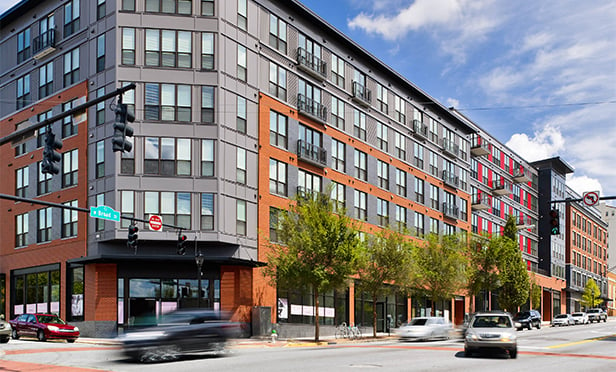NEW YORK CITY—Recently Rob Shapiro, in our Northern Manhattan office, sent an email asking our agents to send 1031 exchange options for his client. He was looking for NYC multifamily properties with a 6% cap or better. Realizing this was an impossibility, instead I forwarded a 72,000-SF office building in Mount Vernon, which is a 25 minute train ride from the New York City.
The property was asking $10.5 million with 80% of its office space occupied and the retail fully leased, including a McDonalds. It had an in place 7% cap which would end up at a 9.5% if fully leased. The price equated to under $140/SF, which is a fraction of what the same building would command in NYC.
Ultimately, this 1031 buyer signed a contract and will close in short order. This is only one example of a Manhattan-based buyer searching for other boroughs or outside the city for yield.
Over the last few years, this has been a major trend. In 2010 and 2011, Manhattan accounted for 29% and 32% respectively, of all NYC sales even though it accounts for only 17% of the building stock. In the first half of 2014 that number has dropped to only 18% of all the sales tracking on par with his building count percentage.
After the market corrected in 2009, we believe there was a flight to quality and safety. Now that the market has recovered, buyers from around the world are more confident in all of NYC. In fact, I was at a breakfast the other day where an operator told me that he now has investors from Hong Kong and London asking to invest in Bushwick and similar neighborhoods in Brooklyn. I would have laughed at the possibility years ago.
Further to the point, I was at a conference in Long Island City last week, and was shocked to see close to 300 people there one morning at 8am. The panelist said that rents there are now $50/SF, while condos sell for over $1,000/SF. Of course, land and surrounding property values have surged. Now it seems LIC is “too expensive.”
Our NJ office has seen an unprecedented surge in activity as of late with over half of our sales coming from NYC buyers. According to David Simon, our executive managing director there, the rate of return seems to be the main driving factor. Its office recently sold an office portfolio in Union, NJ to a NYC based investor at a 5.7% cap rate. Similar properties in NYC are trading in the 3-4% cap range, making New Jersey a very attractive option. Additionally, our NJ office recently sold five properties, and three of the five buyers for these properties were NYC based. Currently, our NJ office is handling 312 Applegarth Road in Monroe Township, a four building NNN leased medical and retail portfolio asking $30 million, which is a 5.5% cap return.
Where will NYC investors turn next?
© 2025 ALM Global, LLC, All Rights Reserved. Request academic re-use from www.copyright.com. All other uses, submit a request to [email protected]. For more information visit Asset & Logo Licensing.








